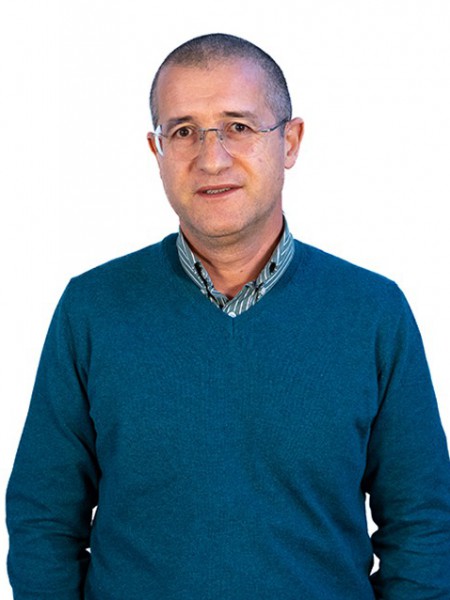abstract
The present study explores the preparation of dual nanofibrillar-based bio-sorbent films composed of cellulose nanofibrils (CNFs) and lysozyme nanofibrils (LNFs) for application in the removal of Hg(II) from aqueous solutions. The free-standing films were fabricated via simple vacuum filtration of water suspensions of CNFs and LNFs and disclose good mechanical and thermal properties. The Hg(II) removal efficiency was evaluated by atomic fluorescence spectroscopy in ultra-pure and natural spring waters contaminated with environmental realistic levels of mercury (50 mu g L-1). The removal efficiency is pH-dependent reaching a maximum of 99 % after 24 h at a pH value close to the isoelectric point of the protein. Under the experimental conditions, the sorption kinetics are well described by the pseudo-second-order and Elovich models, suggesting a chemisorption mechanism. These results demonstrate the ability of the dual nanofibrillar-based films to remove Hg(II) from water samples reaching a residual concentration lower than the guideline value for water intended for human consumption (1 mu g L-1). Therefore, the CNFs/LNFs bio-sorbents might be a solution to treat low-concentrated mercury-contaminated waters.
keywords
CELLULOSE; NANOMATERIALS; ADSORPTION; HG(II); OXIDE; IONS
subject category
Chemistry; Polymer Science
authors
Silva, NHCS; Figueira, P; Fabre, E; Pinto, RJB; Pereira, ME; Silvestre, AJD; Marrucho, IM; Vilela, C; Freire, CSR
our authors
Groups
G4 - Renewable Materials and Circular Economy
G5 - Biomimetic, Biological and Living Materials
Projects
CICECO - Aveiro Institute of Materials (UIDB/50011/2020)
CICECO - Aveiro Institute of Materials (UIDP/50011/2020)
Collaboratory for Emerging Technologies, CoLab (EMERGING TECHNOLOGIES)
acknowledgements
This work was developed within the scope of the projects CICECOAveiro Institute of Materials (UIDB/50011/2020 & UIDP/50011/2020) and CESAM (UID/AMB/50017/2019), financed by national funds through the FCT/MEC and when appropriate co-financed by FEDER under the PT2020 Partnership Agreement. The research contract of N.H.C.S.S. is funded by project NANOBIOINKS (CENTRO-01-0145FEDER-031289), while the research contract of R.J.B.P. is funded by national funds (OE), through FCT - Fundacao para a Ciencia e a Tecnologia, I.P., in the scope of the framework contract foreseen in the numbers 4, 5 and 6 of the article 23, of the Decree-Law 57/2016, of August 29, changed by Law 57/2017, of July 19. FCT is also acknowledged for the doctoral grant to P.F. (SFRH/BD/139077/2018) and for the research contracts under Scientific Employment Stimulus to C.S.R.F. (CEECIND/00464/2017) and C.V. (CEECIND/00263/2018). E.F. thanks the financial support of CNPq (Conselho Nacional de Desenvolvimento Cientifico e Tecnologico), Brazil.







